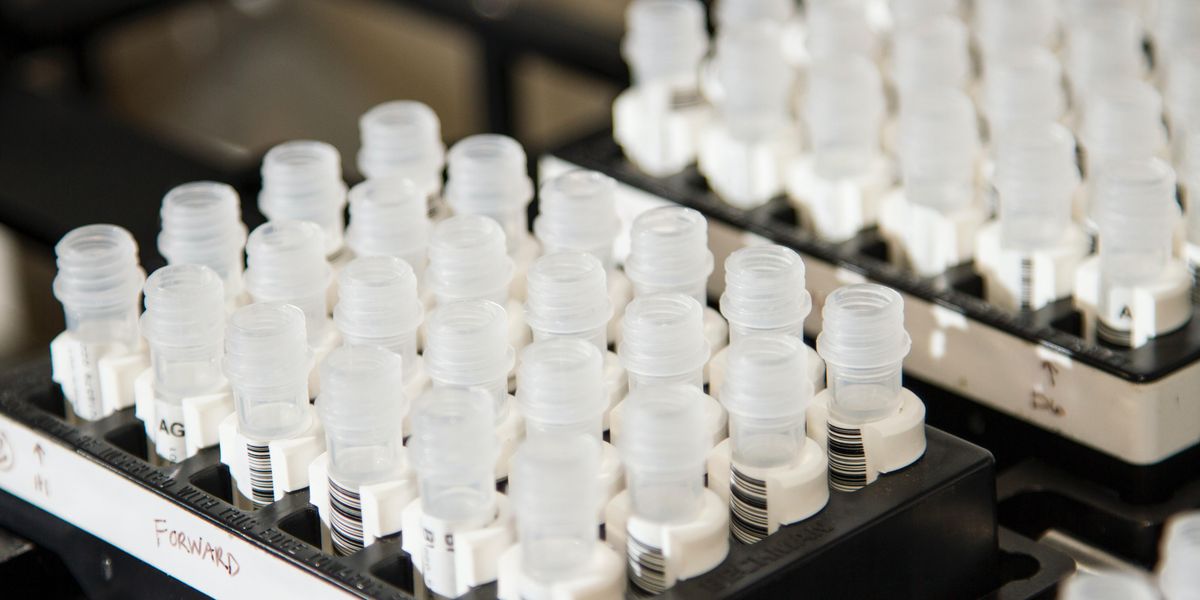
This is the web version of dot.LA’s daily newsletter. Sign up to get the latest news on Southern California’s tech, startup and venture capital scene.
In 2010, Doug Olson became one of the first cancer patients in the world to undergo what was then a speculative and experimental treatment known as CAR-T cell therapy. The treatment worked by genetically engineering T cells—the white blood cells that play a critical role in the body’s immune system—to better find and destroy cancer cells.
More than a decade later, Olson’s cancer has yet to come back.
CAR-T cell therapy is now an increasingly popular option for cancer treatment, with several drug companies staking their claim in the oncology drug world. Last week, Yescarta became the first CAR-T cell therapy on the market that can be used as a second- or third-in-line treatment for cancer. The drug—which was developed by Santa Monica-based Kite Pharma and approved by the Food and Drug Administration—is the first that doesn’t have to be used as a last resort for cancer patients who have exhausted virtually every other option.
Part of the reason CAR-T therapies are used last is because, to date, clinical trials have been tested on patients who are at an advanced stage of cancer treatment. Another problem, however, is procuring these therapies: It takes weeks to reengineer a patient’s T cells, grow them and infuse them back into a patient’s body. By that point, the cancer may evolve or weaken the immune system beyond the point where CAR-T can work.
That’s part of the reason Yescarta’s FDA approval is so significant. If it can be used early on in the treatment process while the immune system is still strong, it may have a better chance of working in the patient’s body.
But scaling these therapies will continue to be a challenge for Kite Pharma and other drug companies if the demand for CAR-T therapy grows. Creating these cell treatments can be a logistical nightmare that involves shipping delicate and deteriorating T cells to different facilities, and sending them back before the T cells die and the patient’s condition worsens.
Besides Kite, Los Angeles’ biotech scene features several companies that have joined the CAR-T wave and are looking to address these issues. Culver City-based Appia Bio is working with Kite Pharma to make scalable, off-the-shelf CAR-T cell therapies using other people’s T cells, rather than those of the patient in question. And ImmPACT Bio, which is based in West Hills, recently raised a nine-figure funding round to develop more resilient CAR-T cell treatments.
But while Yescarta and other CAR-T cell therapies remain promising, there’s one factor no feat of biotech innovation can immediately fix: An infusion of Yescarta can cost as much as $373,000. Bringing that number down requires the one thing cancer seldom affords: time. — Keerthi Vedantam
Inside Activision Blizzard Workers’ Fight for COVID Protections
Over 110 Activision Blizzard employees took part in a virtual walkout on Monday to protest the company’s decision to lift COVID-19 vaccine requirements for office work—a demonstration powerful enough to prompt the video game developer to reverse its policy.
Venture Slowdown? New Data Shows Dip in Global Funding in 2022
Global venture capital funding fell during the first quarter of 2022—reinforcing sentiments that the startup sector is now coming back down to Earth after the stratospheric highs of 2021.
Plex Is Bringing All Your Streaming Subscriptions Under One Roof
Streaming media platform Plex is publicly beta testing a universal discovery feature that condenses multiple streaming services into one location.
PopID Teams With Visa To Bring Facial Payments To the Middle East
The Pasadena-based startup announced it has partnered with financial services giant Visa to promote its facial payment technology PopPay in the Middle East.
Netflix Boosting Anime Content Library Amid Rising Viewership
The streaming giant plans to release roughly 40 anime titles this year across a growing range of genres, from sci-fi to romantic dramas
What We're Reading Elsewhere...
- WarnerMedia's CEO plans to exit the company ahead of its merger with Discovery.
- Peacock scoops up executives from Hulu and Netflix.
- Deaf engineers at Snapchat release a lens to teach users the ASL alphabet.
- Disney Plus removes mature content that was mistakenly added to the platform.
- Rivian will likely meet its revised annual production goal following Q1 success.----
How Are We Doing? We're working to make the newsletter more informative, with deeper analysis and more news about L.A.'s tech and startup scene. Let us know what you think in our survey, or email us!


